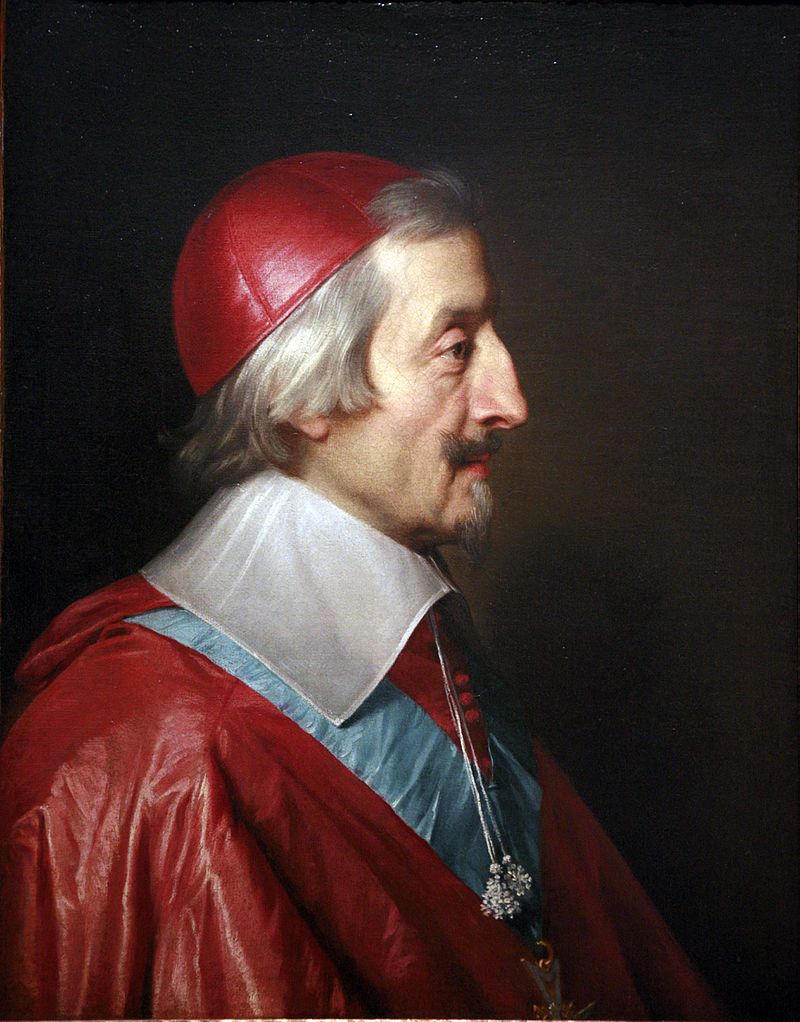Cardinal Richelieu's France Expansion Strategy Revealed

Mastering the Art of Geopolitics: Cardinal Richelieu's France Expansion Strategy

In the 17th century, Cardinal Richelieu, the Chief Minister of France, orchestrated a series of bold moves that transformed France into a dominant European power. His expansion strategy, built on a foundation of meticulous planning, cunning diplomacy, and strategic military campaigns, offers valuable lessons for modern leaders seeking to expand their influence. In this blog post, we will delve into the intricacies of Richelieu’s strategy, highlighting the key factors that contributed to his success.
Understanding the Context: France's Position in 17th-Century Europe

When Richelieu assumed power in 1624, France was facing numerous challenges. The country was plagued by internal conflicts, its economy was struggling, and its military was no match for the dominant powers of Europe, including Spain and the Holy Roman Empire. Richelieu recognized that France’s survival depended on its ability to expand its territory, secure its borders, and assert its influence over the continent.
Richelieu's Expansion Strategy: A Three-Pronged Approach

Richelieu’s strategy for expanding France’s influence consisted of three primary components:
- Diplomacy and Alliance-Building: Richelieu understood the importance of forging strategic alliances to counterbalance the power of rival nations. He skillfully negotiated treaties with other European powers, often playing on their fears and rivalries to further French interests.
- Military Campaigns and Strategic Conquests: Richelieu oversaw a series of military campaigns aimed at expanding France’s borders and securing key territories. He focused on conquering strategic locations, such as the Alsace region, which provided access to the Rhine River and facilitated trade with the Holy Roman Empire.
- Internal Reforms and Modernization: Richelieu recognized that France’s internal weaknesses were a significant hindrance to its expansion. He implemented a range of reforms aimed at modernizing the French state, including the creation of a centralized administration, the promotion of trade and commerce, and the development of a strong and efficient military.
Key Factors Contributing to Richelieu's Success

Several factors contributed to Richelieu’s success in expanding France’s influence:
- Strategic Vision: Richelieu possessed a clear and coherent vision for France’s expansion, which guided his decision-making and helped him stay focused on long-term goals.
- Flexibility and Adaptability: Richelieu demonstrated an ability to adapt to changing circumstances and adjust his strategy accordingly.
- Effective Use of Diplomacy: Richelieu’s mastery of diplomacy enabled him to forge strategic alliances, manipulate rival powers, and secure key concessions.
- Strong Leadership: Richelieu’s leadership and vision inspired loyalty and confidence among the French people, which helped to mobilize support for his expansionist policies.
Lessons for Modern Leaders

Richelieu’s expansion strategy offers valuable lessons for modern leaders seeking to expand their influence:
- Think Strategically: Develop a clear and coherent vision for expansion, and stay focused on long-term goals.
- Build Strong Alliances: Foster strategic relationships with other powers to counterbalance rivalries and secure key concessions.
- Invest in Internal Reforms: Strengthen internal institutions and modernize the state to provide a solid foundation for expansion.
- Demonstrate Flexibility and Adaptability: Be prepared to adjust your strategy in response to changing circumstances.
💡 Note: Richelieu's success was also due in part to his willingness to take calculated risks and challenge conventional wisdom. Modern leaders would do well to adopt a similar mindset, embracing innovation and experimentation as key drivers of growth and expansion.
In conclusion, Cardinal Richelieu’s France expansion strategy offers a compelling case study for modern leaders seeking to expand their influence. By combining strategic vision, diplomatic acumen, military prowess, and internal reforms, Richelieu transformed France into a dominant European power. As we reflect on his achievements, we are reminded of the enduring importance of strategic thinking, adaptability, and strong leadership in shaping the course of history.
What were the primary components of Richelieu’s expansion strategy?

+
Richelieu’s strategy consisted of three primary components: diplomacy and alliance-building, military campaigns and strategic conquests, and internal reforms and modernization.
What factors contributed to Richelieu’s success?

+
Several factors contributed to Richelieu’s success, including his strategic vision, flexibility and adaptability, effective use of diplomacy, and strong leadership.
What lessons can modern leaders learn from Richelieu’s expansion strategy?

+
Modern leaders can learn the importance of thinking strategically, building strong alliances, investing in internal reforms, and demonstrating flexibility and adaptability.



